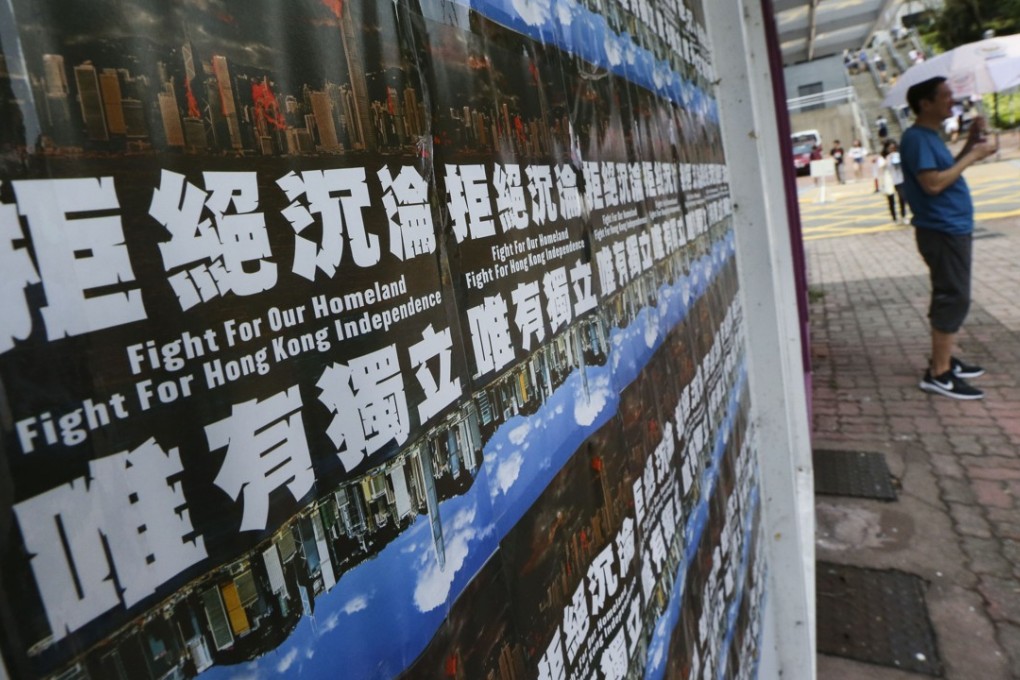Ban advocacy of Hong Kong independence, Beijing mouthpiece says amid banner row
Commentary published on People’s Daily overseas edition website says such discussion should be made illegal, like promotion of Nazism in Germany

Hong Kong authorities must “take legal action” to forbid residents from advocating the city’s independence from China as such remarks went beyond the realm of civil liberties, a commentary run by the official newspaper of the Communist Party suggested.
According to Xiakedao, a social media account operated by People’s Daily overseas edition staff, calling for Hong Kong’s independence should be made criminal, just like it is illegal to promote Nazism in Germany.
“For some people, freedom of speech is like an all-powerful move in a computer game ... but in fact, there is no such thing as an absolute or irresponsible use of freedom of speech anywhere in the world,” the author wrote.
It’s up to Carrie Lam to assuage Beijing’s fear over Hong Kong independence
Citing several German court rulings and parliamentary resolutions from 1979 to 1994, the commentary stated that the promotion of Nazism or the downplaying of the Holocaust had been made punishable by imprisonment.
“In China, the biggest pain that we suffered in modern times was the invasion of foreign powers and the division of national territory ... from this perspective, it’s legitimate for Hong Kong to make independence [advocacy] a taboo through legal means.”